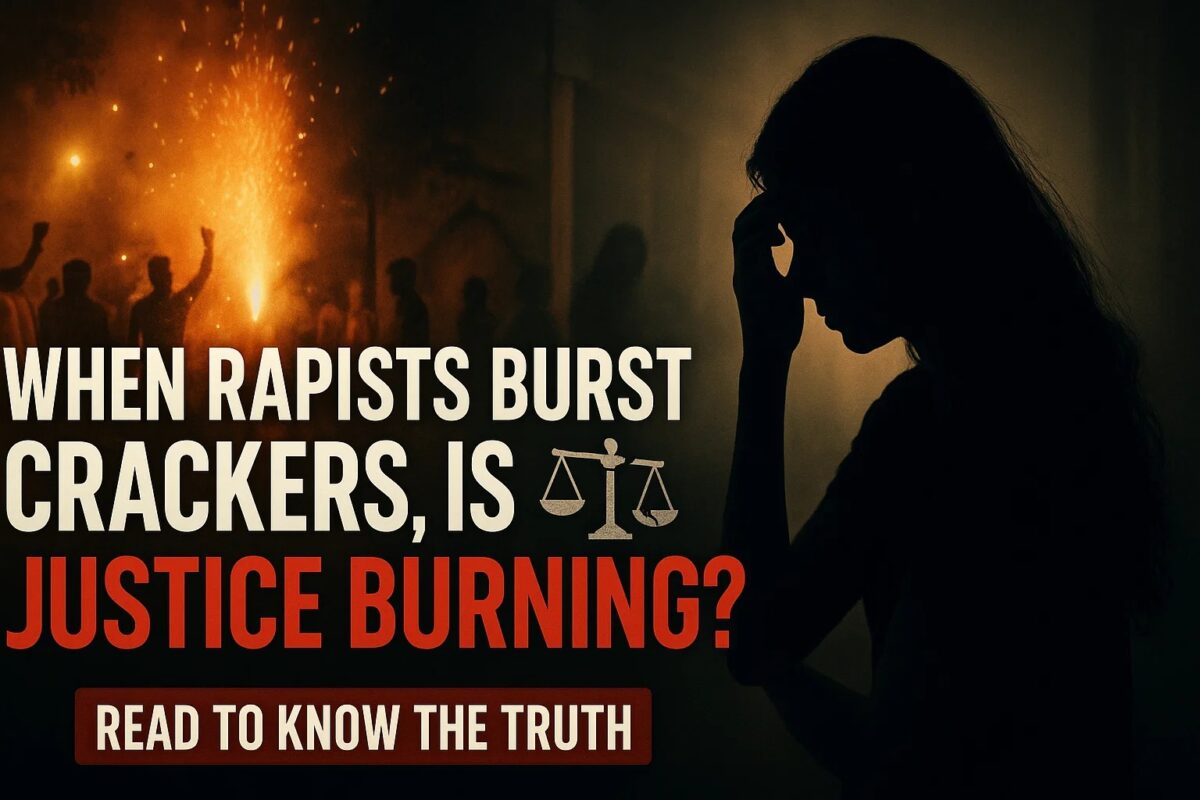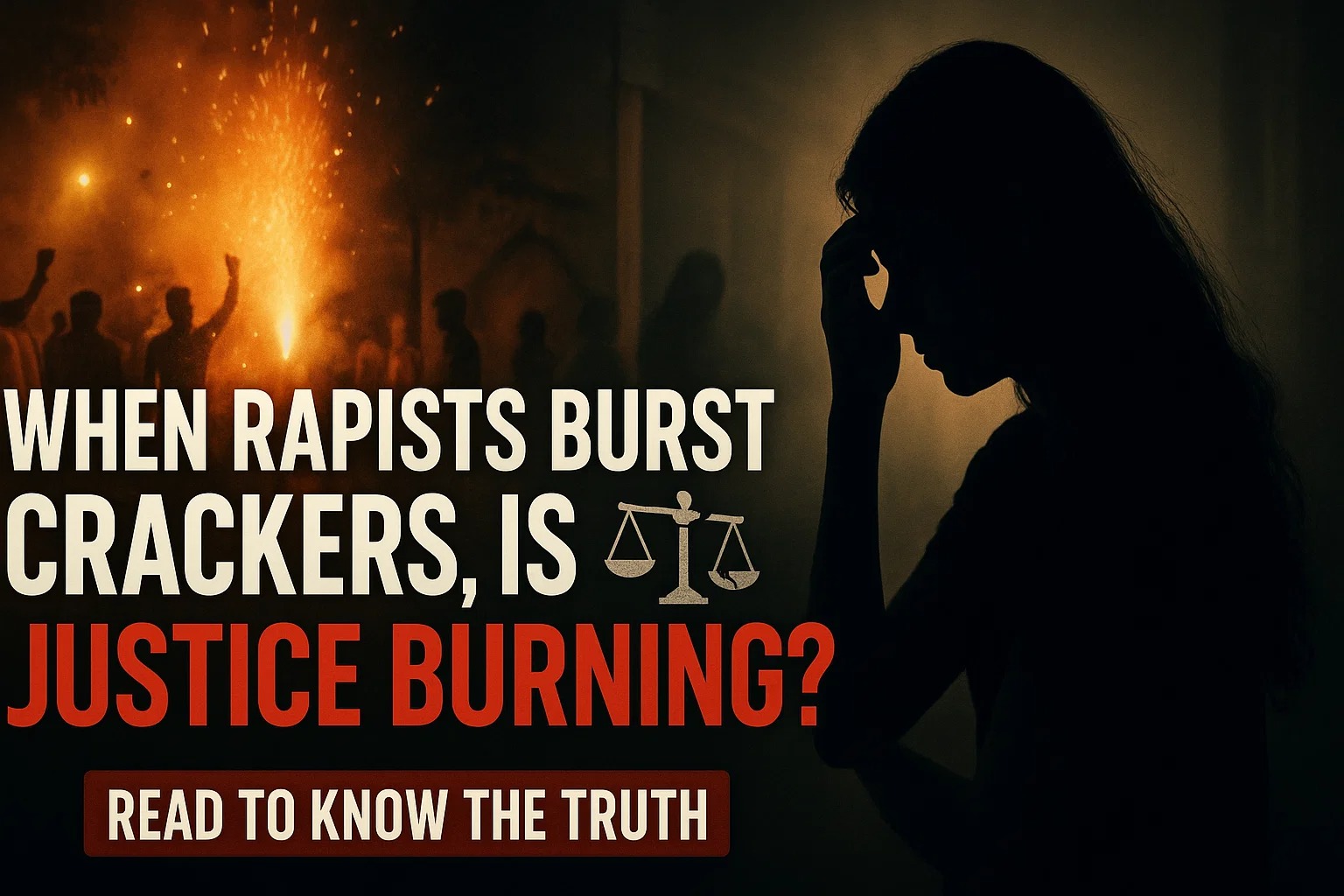Introduction: Bail as a Gateway to Celebration, Not Reflection
In a horrifically sickening trend coming out of Karnataka, some rapists accused of rape have been found celebrating after being granted bail. Far from being remorseful or restrained, these men have openly celebrated—bursting crackers, garlanding themselves, and taking victory stands for social media. These incidents, while appalling, indicate deeper fissures in India’s justice system, where bail is often more a symbol of victory than a privilege subject to review.
The Celebration: A Sign of Insult
Recent events reported in places such as districts Mandya and Belagavi demonstrate convicted rapists returning to their villages in style—cheers, firecrackers, sweets, and garlands. Not only is it offensive to watch, it’s also a chilling message that goes out to the survivor and to society as a whole: that power, patriarchy, and loopholes in law can negate even the most abhorrent charges.
In one case, a rape accused was greeted with a procession while the survivor, continuing to receive counselling for trauma, had to move away due to fear of social retaliation. These celebrations silently taunt both the survivor’s suffering and the slow, tedious work of the judiciary.
Victim Intimidation and Social Consequences
The celebration of bail in the public domain is not a personal matter—a matter of re-victimization. When rapists come home with glory, the survivors are kept quiet by fear and shame. In rural Karnataka, victims are coerced by community pressure to retract cases or settle matters with the accused through informal “panchayat justice”—an extra-legal, male-dominated process in which silence prevails over justice.
These bail parties typically occur with the implied sanction—or intimidated silence—of the local authorities, so survivors wonder if it was even worth the trauma to report the crime.
What Does Bail Actually Mean?
Legally speaking, bail is a conditional release meant to prevent undue pre-trial detention rather than an exoneration. However, bail and acquittal are synonymous in India’s sociopolitical context. This misunderstanding makes it possible for those who are accused to pretend to be innocent in public, twisting the facts and placing the blame back on the victim.
Systemic and Legal Failures
This alarming trend points towards three broad systemic failures:
- Judicial Discretion Lapses – Courts frequently fail to look at the socio-psychological effect of bail on survivors, particularly in sex attack cases.
- Weak Bail Conditions – In most cases, there are no concrete conditions like “no contact with victim,” which permit accused persons to intimidate or coerce survivors after release.
- Lack of Legal Literacy – Rural communities do not comprehend the legal difference between bail and innocence, perpetuating misogynist myths.
Conclusion: A Call for Urgent Reform
Celebration of bail by rape accused in Karnataka is not only a moral scandal—it’s a human rights emergency. This practice requires instant legal overhaul, including:
- Mandatory restraining orders after bail
- Rapid-track hearings to prevent long-drawn-out trials
- Penal action for public glorification of accused in sensitive case
Until that time, justice will be a ceremonial term—easily overpowered by the noise of firecrackers and impunity.


